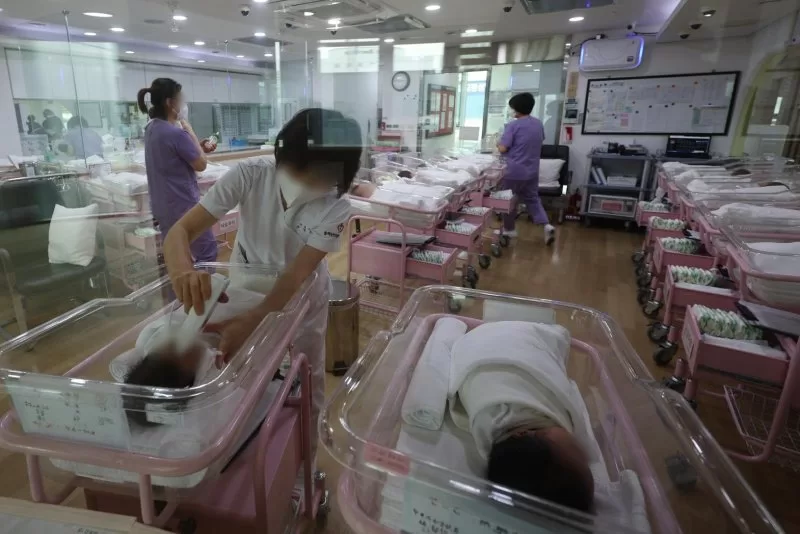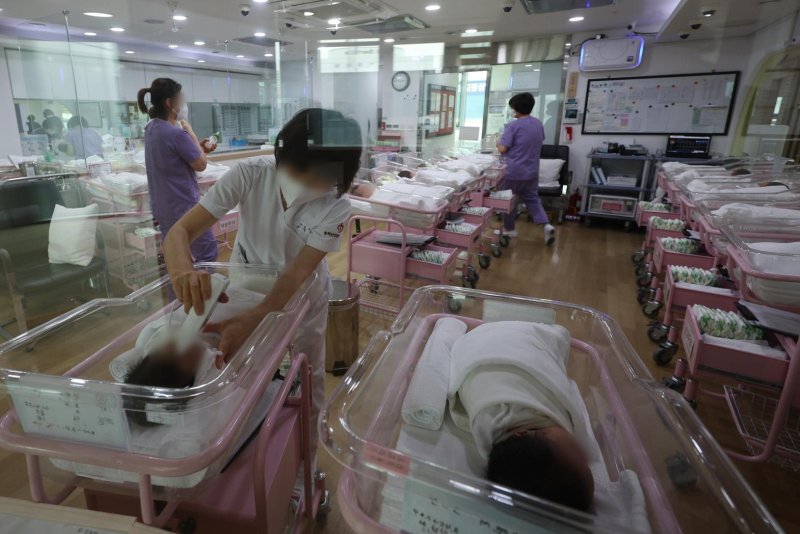South Korea’s fertility rate fell to an all-time low in 2023, its statistics agency announced on Wednesday, fueling concerns of a looming demographic crisis. Pool Photo by Yonhap
SEOUL, Feb. 28 (UPI) — South Korea’s fertility rate — already the lowest in the world — fell again in 2023, its statistics agency said Wednesday, adding to concerns that a fast-declining population will stifle economic growth and strain pensions and social welfare programs.
The number of babies expected by a woman in her lifetime was just 0.65 in the October-December quarter, down 0.05 from the same period a year earlier, according to provisional data from Statistics Korea. The figure was the lowest recorded for any quarterly reading, the agency said.
South Korea’s total fertility rate for 2023 fell to 0.72, down from 0.78 the previous year — meaning that for every 100 women, just 72 babies are expected to be born over their lifetimes.
That mark is by far the lowest in the world, less than half the average rate of the 38 members of the Organization for Economic Cooperation and Development.
A fertility rate of 2.1 is considered the level needed to keep a population from declining.
The total number of births in the country dropped to an all-time low of 230,000 in 2023, a decline of 7.7% from the year before, Statistics Korea said.
A number of factors, including high housing and education costs and gender inequality in the workplace, have made young people reluctant to start families.
The government has tried various incentives to help entice families to have children, including a cash allowance for newborns that was raised to roughly $750 per month at the start of the year.
The city of Seoul also unveiled a $1.35 billion “birth encouragement” program earlier this month, which will include subsidies for fertility treatments and egg freezing as well as expanded childcare assistance.
Even private companies are getting in on the act, with one Seoul construction company offering a $75,000 bonus to employees with newborns.
For now, however, the specter of a demographic crisis continues to grow. Statistics Korea projected in December that the country’s population will decline from nearly 52 million in 2022 to 36.2 million in 2072. The United Nations is forecasting that South Korea’s population will shrink to less than half of its current total by 2100.

